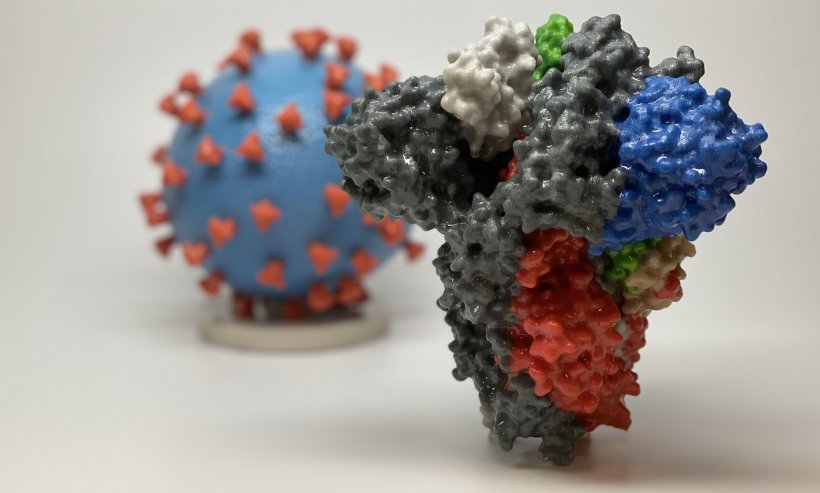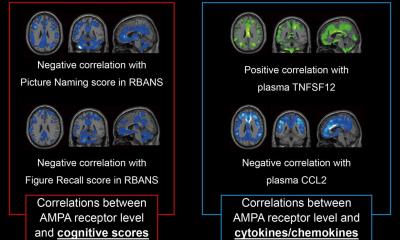
Image credit: NIH
News • Coronavirus inhibition
Highly potent antibody against SARS-CoV-2 discovered
Scientists at Lausanne University Hospital (CHUV) and École polytechnique fédérale de Lausanne (EPFL) have discovered a highly potent monoclonal antibody that targets the SARS-CoV-2 spike protein and is effective at neutralizing all variants of concern identified to date, including the delta variant.
Their findings are published in the journal Cell Reports.
The newly identified antibody was isolated using lymphocytes from Covid-19 patients enrolled in the ImmunoCoV study being carried out by CHUV’s Service of Immunology and Allergy. This antibody is one of the most powerful identified so far against SARS-CoV-2. Structural characterization of the antibody indicates that it binds to an area that is not subjected to mutations of the spike protein. Through this tight interaction, the antibody blocks the spike protein from binding to cells expressing the ACE2 receptor, which is the receptor the virus uses to enter and infect lung cells. That means the antibody halts the viral replication process, enabling a patient’s immune system to eliminate SARS-CoV-2 from the body. This protective mechanism was proven through in vivo tests on hamsters; specimens that were administered the antibody were protected against infection even after receiving a highly infectious dose.
In addition to its antiviral properties, the new antibody is designed to have a lasting effect in humans. A typical unaltered antibody provides protection for up to 3–4 weeks. But this new one can protect patients for 4–6 months. That makes it an interesting preventive-treatment option for unvaccinated at-risk individuals or for vaccinated individuals who are unable to produce an immune response. Immunocompromised patients, organ transplant recipients and those suffering from certain kinds of cancer could be protected against SARS-CoV-2 by receiving antibody injections two or three times a year. CHUV and EPFL now plan to build on these promising results in association with a start-up company which will perform clinical development and production of the antibody-containing drug, through cooperation and intellectual property agreements. Clinical trials of the drug should begin in late 2022.
This research was conducted jointly by CHUV’s Service of Immunology and Allergy, headed by Prof. Giuseppe Pantaleo and Dr. Craig Fenwick, and by EPFL’s Laboratory of Virology and Genetics, headed by Prof. Didier Trono and Dr. Priscilla Turelli. The research team was able to respond to the pandemic and discover this neutralizing antibody so quickly thanks to the multi-year support of the Swiss Vaccine Research Institute. Prof. Pantaleo’s department at CHUV also received support from the Corona Accelerated R&D in Europe (CARE) program, which is part of the Innovative Medicine Initiative (IMI) – a public-private partnership that seeks to address bottlenecks in the drug discovery and development process in Europe.
The discovery of this new antibody marks a major step forward in the fight against Covid-19. It opens the door to improved treatments for severe forms of the disease and to enhanced prophylactic measures, especially for patients with weakened immune systems. However, this antibody is not intended to replace Covid-19 vaccines, which remain the most effective way to prevent infection.
Source: École polytechnique fédérale de Lausanne
18.10.2021











